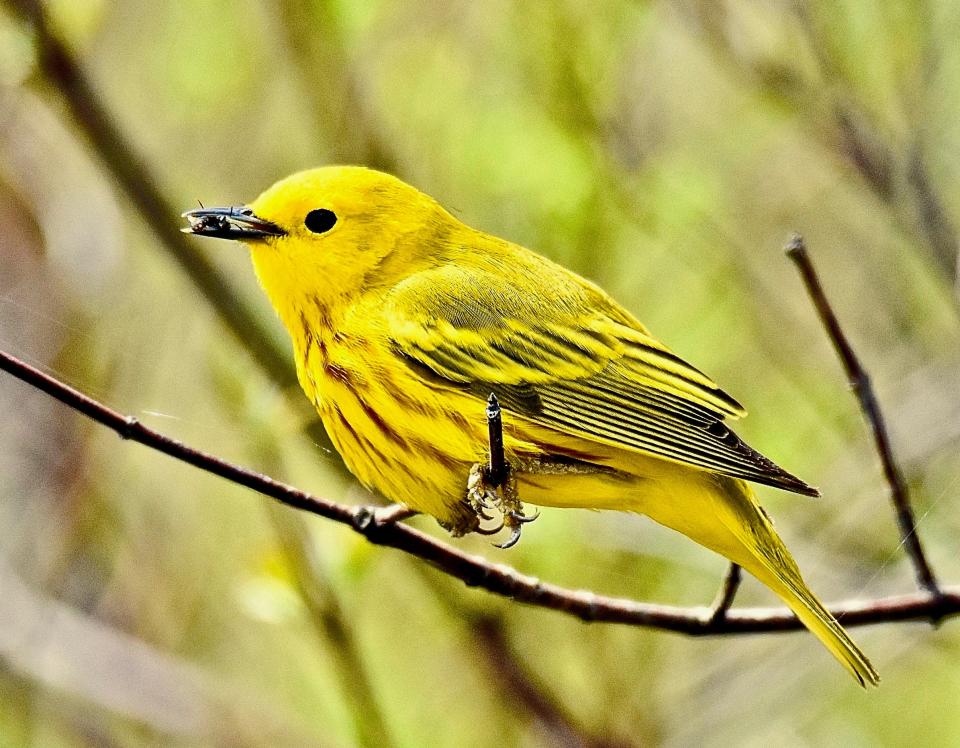Rivers, skies and animals prove it. Nature means change
Nature means change, only some things change faster than others.
Birds molt winter plumage to gain breeding feathers, but this can take weeks to accomplish. Deer coats transform from ash-gray to rich brown, but it doesn’t occur in an hour. Only rivers and skies seem to relish the fact they can alter their moods overnight.
Rivers use rain to affect their makeovers. Thunder rolls from the west in the night, shaking windows. By morning, smooth glides churn a thick muddy brown, clogged with flotsam from neighboring fields. Yesterday’s river slipped slowly, deep green. Today it might kill those who think they can go for a ride.

Knowing how quickly a river can change, we should relish sweet moments upon one. My best moments are quiet ones for listening.
I enjoy hearing rivers as they slide over boulders. Slick and smooth as blown glass, wavelets ripple a bit when a summer breeze suddenly freshens. Looking now toward the shore, if I listen quite closely, I can hear ostrich ferns as they wave their fronds backward and forward (so jungle-like, verdant and fresh).
That’s my kind of river – the one that hypnotizes, transfixes, relaxes, inspires with its seemingly eternal flow.
More: Taking up bird watching could boost your mental health. How it works
One shouldn’t just listen, of course, one should look. The two go together; they’re borne of the same mental outlook. One who strains to hear gurgles will strain to make out what that yellow bird is, the one perched over there in that shrub. It’s a yellow warbler, much brighter than butter.
The warbler’s home roost is a riverbank thick with tall grasses. Ferns fight for space here. Sycamore trees rise above the turf battle; so do vultures that float overhead on air pillows, their wings getting something for nothing. Back on the ground, the air vibrates with bird song. It’s a charge you can feel, a life current of whistles and trills.
You want to count birds? You can do it here. Get out your field notebook. Scribble down hummingbird, oriole, redstart, phoebe. Then scribble more – names like yellowthroat, kingbird, kingfisher.
Take a break, look upriver. A twilight deer crossing transpires. Their coats are so red at this time of year. Their forelegs churn foam as they slice through the riffles. Splashing ashore, whitetails bound through tall grass. It absorbs them as quickly as sand blots raindrops from a shower.
Soon bats will emerge as the night river starts taking over. Sounds will become even more magnified as the mind starts to play little games. What was that splash over there in the shallows? A beaver? A gremlin? A troll?
Watch out for smooth stones hiding under the surface. They will wrench you from lethargy, then send you sprawling face first.
Darkness descends. There’s a friend out there somewhere, a warm human body that talks. He gave you some space before dark, walking off down the river. Now you call out. He appears, walking softly, his cotton shirt soft like thick air hanging over the river.
The two of you walk, splashing softly toward home. Rivers change, but not that fast. Tonight, anyway, rain is far to the west. Trout will sip softly and water won’t rush anywhere.
E-mail Rick at rmarsi@stny.rr.com
This article originally appeared on Binghamton Press & Sun-Bulletin: Rivers, skies and animals prove it. Nature means change

